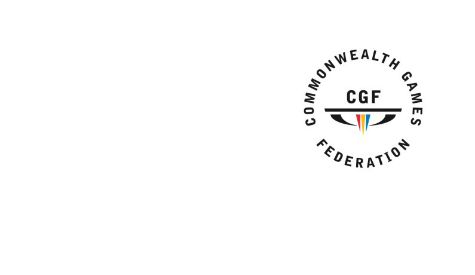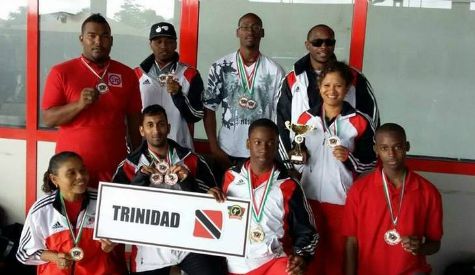 Calypso Girls win two on the trot
Calypso Girls win two on the trot
The Trinidad and Tobago Calypso Girls turned on the style at the ongoing Netball World Cup as they beat Zambia 66-39 in an exciting contest, yesterday. The combined experience of captain Joelisa Cooper and veteran Rhonda John-Davis helped T&T to their second win in a row on day five at the World Cup.
Despite the match being played around midday Sydney time, local netball enthusiasts had to ready the coffee and wait till late yesterday to see the match which started 10.20pm T&T time, on Monday.
The team did not disappoint, however, as Cooper led the assists count with 14, while centre John-Davis, a veteran of five Netball World Cups in her 152nd appearance in the red, white and black, had 13 assists of her own.
At spanking-new Netball Central Arena, both teams set out to impose themselves on the match early. Zambia was the first to get on the scoreboard, using patient play to get the first goal courtesy of Lucy Jere. But it was the slicker connections in the T&T forward line which allowed the Calypso Girls to pull ahead.
T&T burst out of the blocks in the second quarter. Goal attack Joelisa Cooper, who scored seven goals out of eight attempts overall, worked hard up the court playing as a wing-attack, finding the holding goal shooter Samantha Wallace, who was bombing them in from range.
A solid defensive effort from T&T, particularly wing defence Onella Jack, wreaked havoc in the Zambian attacking third. Two injury time-outs in quick succession saw T&T forced to make changes at centre and goal-defence, but didn’t disrupt their flow as they continued to add to their tally.
The introduction of Zambian goal attack Elizabeth Bwalya at half-time created one of the shortest shooting line-ups of the tournament, though adding pace and ball speed to the Zambian attack line.
After running goal-for-goal for most of the quarter, T&T eventually pulled away again, with goal defence Candice Guerero beginning to create turnovers and shooter Afeisha Noel mixing it up under the post with strong holds and even a lay-up.
Calypso Girls coach Wesley Gomes made a number of changes for the last quarter as they continued to push out the margin. Cooper returned to the match in wing-attack, showing good vision to feed her shooters. Screens set by Noel created plenty of opportunity for the speedy goal-attack Kalifa McCollin, who scored seven goals, while the long arms of keeper Daystar Swift created uncertainty for the Zambian feeders.
Cooper was elated with the win, which has helped T&T to finally gain momentum in the tournament. “We are trying to do everything we have been taught in training to move from this game onto the next and go from strength to strength,” Cooper said.
“We still have a lot of unforced errors, a lot of drop catches and a lot of turnovers from the defence straight back so we need to work on that stuff. “We just need to relax and play our brand of netball. There is no need to force the ball or do anything fancy; we just need to relax and play our game.” she added.

 To mark UN International Youth Day, the Commonwealth Games Federation (CGF), working with
To mark UN International Youth Day, the Commonwealth Games Federation (CGF), working with
 The Olympic Games is the most anticipated multi-sport event on the global calendar. Following the ‘One year to Rio 2016’ acknowledgement at Olympic House on Wednesday 5th August, President of the Trinidad and Tobago Olympic Committee (TTOC), Brian Lewis, wants to turn the Lord Harris square into an Olympic experience. The idea is to recreate the square into an Olympic Park and the surrounding community into an Olympic neighbourhood.
The Olympic Games is the most anticipated multi-sport event on the global calendar. Following the ‘One year to Rio 2016’ acknowledgement at Olympic House on Wednesday 5th August, President of the Trinidad and Tobago Olympic Committee (TTOC), Brian Lewis, wants to turn the Lord Harris square into an Olympic experience. The idea is to recreate the square into an Olympic Park and the surrounding community into an Olympic neighbourhood. The Olympic Park will be focused on creating an Olympic experience for supporters of the Trinidad and Tobago Olympic team. The park will include a number of different features to attract supporters with the intention of building greater awareness and support for sport in Trinidad and Tobago.
The Olympic Park will be focused on creating an Olympic experience for supporters of the Trinidad and Tobago Olympic team. The park will include a number of different features to attract supporters with the intention of building greater awareness and support for sport in Trinidad and Tobago.
 The aquatics team struck gold on day one of the competition. Swimmers Nikolai Lalla finished his 50 metre breaststroke in 38.43 seconds, Jariah Walker finished his 25 metre backstroke in 23.23 seconds and Chavez Lamy in 16.85 seconds. Shania Surujbally and Jaleel Pierre won ribbons. Stefan Singh won silver in the 1,500 metre Open Water Swim, which was the first time this competition was held at Special Olympics.
The aquatics team struck gold on day one of the competition. Swimmers Nikolai Lalla finished his 50 metre breaststroke in 38.43 seconds, Jariah Walker finished his 25 metre backstroke in 23.23 seconds and Chavez Lamy in 16.85 seconds. Shania Surujbally and Jaleel Pierre won ribbons. Stefan Singh won silver in the 1,500 metre Open Water Swim, which was the first time this competition was held at Special Olympics. The football team was successful in defeating Canada, Barbados, Costa Rica, Switzerland, St Vincent and the Grenadines and Hong Kong.
The football team was successful in defeating Canada, Barbados, Costa Rica, Switzerland, St Vincent and the Grenadines and Hong Kong. In athletics Donelle Walkes ran the 200m in 34.72 seconds to capture a Gold Medal. Yetendra Sing and Ishmael Perpignac won 7th place ribbons in their 400 metre races. Donal Doyle took 8th place ribbons in the 200 metre race. In the “Softball Throw”, which is an adaptation of the “Shot-put”, Salina Lennard won Gold with a throw of 9.97m Rosanna Gebodh also won Gold with a throw of 6.40m, while Tmeyon Logie capturing a Silver Medal with a throw of 14.46m and Jade Ramkawalsingh threw 11.82m to capture a Bronze Medal.
In athletics Donelle Walkes ran the 200m in 34.72 seconds to capture a Gold Medal. Yetendra Sing and Ishmael Perpignac won 7th place ribbons in their 400 metre races. Donal Doyle took 8th place ribbons in the 200 metre race. In the “Softball Throw”, which is an adaptation of the “Shot-put”, Salina Lennard won Gold with a throw of 9.97m Rosanna Gebodh also won Gold with a throw of 6.40m, while Tmeyon Logie capturing a Silver Medal with a throw of 14.46m and Jade Ramkawalsingh threw 11.82m to capture a Bronze Medal.
